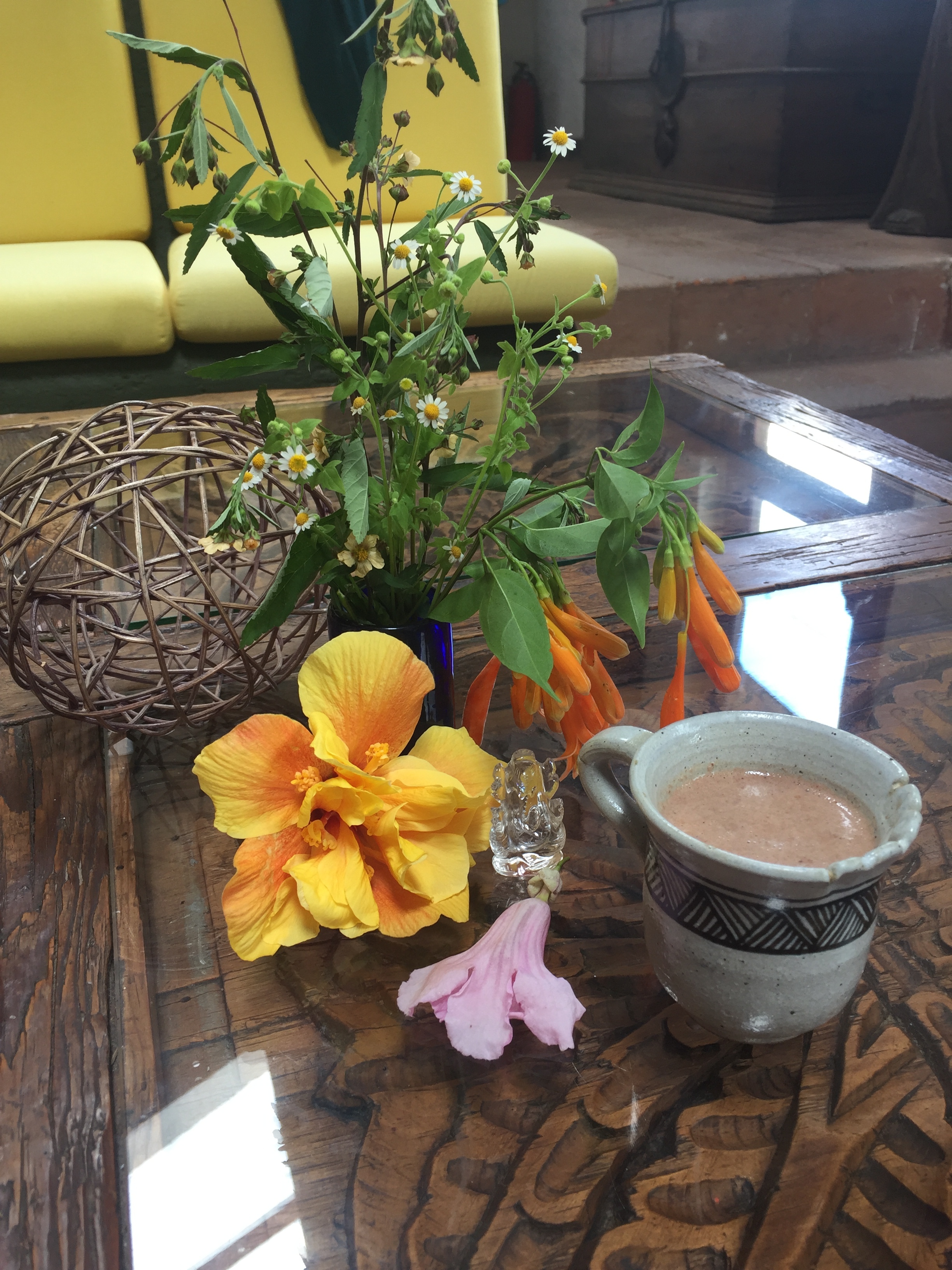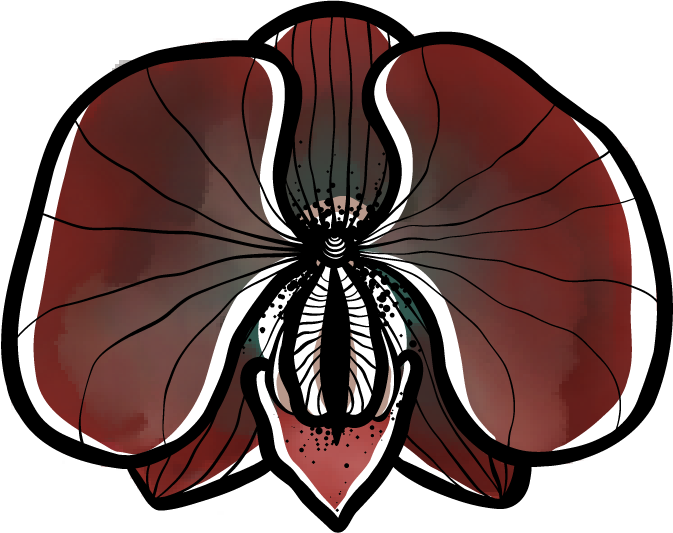A mama friend recently was visiting for a double playdate. We drank kava kava tea and talked in staccato conversations, interrupted every 10 minutes by our children who were about to kill themselves or each other. At one of the many points in the afternoon, I got up and saved my daughter from a near-death situation. I did it like I do it most of the time, addressing the behavior in clear words and redirecting her.
“You have the patience of a saint,” my friend told me when I joined her at the table again.
I laughed out loud. No one has ever described me like that. But reader: These days, it’s true.

Yes, there are times when I yell at my daughter. This little warrior I raise defies logic and refuses to learn in any other way except to fall into brick hard lessons. It hurts to know what’s going to happen when she touches the stove despite my best warning or to witness her lose all sanity when I tell her she needs to wash her hands after using the bathroom. I hit limits that cannot be contained. I become a volcano.
Having lived on Kaua’i, I know volcanoes serve a good purpose. But too many leaves the land filled with fire and smoke. Which is why I am grateful for my friend’s reflection — I am no longer the glowing mass of lava I used to be. I see that I now act more from a place of patience than from impatience. This is progress.
Patience for Impatience
I used to identify as an impatient person. It was during a 15-year period when I worked a lot and defined my success in life as career success. I had an amazing resume. I got shit done in the face of huge odds. When I left work, I kept the fires burning. I’d go running, take a fast-paced yoga class, or drink expensive bourbon. I did all of these until I passed out at night from pure exhaustion.
I look back at my impatient days — I was a lava factory.
I cursed at drivers who had the audacity to signal left and turn right.
I pushed my employees to do more, and do it sooner.
I grunted and huffed audibly whenever I found myself in any kind of line. Especially if someone was making light conversation with the cashier.
I criticized people whose love could not keep up with me.
I made unreasonable commitments about what I could fit into a day and labeled myself a failure when I did not reach my goals.
It did not serve me well, but my impatience was something I oddly was proud of.
Perhaps it was not my impatience itself that made me proud, but that my impatience gave me importance. It allowed me to own my desires in a world where a woman’s needs are given no air time. If I yelled at someone or got angry, at least my voice took up some room.
But people rarely responded the way I wanted them to when I yelled or pushed harder. Same goes for my daughter. Anger, and the impatience that it fuels, can offer a beautiful form of destruction when destruction is called for. But living full-time in a battlefield is not living well.
The Cumulative Effect
I didn’t start my personal practices of self-love, emotional healing, yoga, and Ayurveda because I wanted to let go of my impatience, or anger, or deep disappointment in myself and all of life. I came to them because I had no other choice but to change my direction. I found each of my teachers and practices at different points in my life when I had run up a mountain too quickly with no oxygen tank. Gasping for air, I had to accept who or what was in front of me. The Goddess has been very, very good to me.
I carry no measuring stick of progress that I have made. Nor do I carry regret for my past actions. Neither do me any good in this multi-lifetime process of healing. All I do is follow what opens me up and leave behind what closes me off.
The practices I do are known for their cumulative effect, meaning they take dedication. And I have found that the dedication is as great a medicine as the practices themselves. There are immediate results too: When I quit coffee and stopped using alcohol to hide from my feelings of inadequacy, my skin cleared up and the birds began to sing a little sweeter. But the bigger shifts have come with time. My softening is a long and careful labor, like refinishing an antique chair. It comes daily, just a bit at a time.
Wake Up and Do It Again
Sitting every morning for 30 minutes of pranayama and meditation even when I don’t want to has built my ability to be with discomfort. Journaling each day has built my awareness of my depth. Eating foods that cool my naturally fiery constitution and calm the wind that blows through my bones has eased and toned me. Removing competition or exercise from my yoga asana practice or other ways I move my body has allowed me to look away from external comparison as a barometer of my worth.
These are daily accumulations. Each morning, each meal, each yoga pose inching me a little bit closer to this Self that I have glimpsed flowing through this aging skin. I don’t notice myself expanding just like I don’t notice my daughter getting taller every day. Some days I look at her and see that she runs with more confidence. Only then do I realize that progress has happened.
I know that I’ve stopped yelling as much. That is easy to see. More subtly, I’ve found that I have become more accepting (actually welcoming) of others’ circumstances and shortcomings. I also have days when I catch myself in the mirror and realize that I suddenly love myself so madly that I refuse to engage in negative self-talk about my appearance. That is progress. But I must work to not be blind to it.
Sisterhood and a Cup of Tea
There are a million benefits of sisterhood. Companionship. Shared laughter. Finding someone else who makes us feel less crazy. Lifting each other out of the confines of our feminine isolation in a masculine world. I have heard that humans are a social animal, but surely they were studying women.
I love the text exchanges that send me running to brew what I call “Mama’s Little Helper” tea (recipe below). Because what comes next is the chance to sit and talk with another mama while our children learn how to be humans together. In these precious minutes, we find ourselves because we find one another. Me in her reflection. And she in mine.
Being able to sit and connect like this is also progress. Progress because there are a lot of forces in the world that make us resist this, to place it at the bottom of a very big pile in our closet. But indeed, it is among the most important of our needs.
I’m grateful for my sister friends who tell me my daughter has grown, and that I, too, have gotten a little bigger. Without these mirrors, to keep going would be a losing game.
Mama’s Little Helper tea
Kava Kava means “talk talk” in Javanese. All of these plants in this blend are known for their effects on the nervous system, but kava especially for its ability to release the nervous system and allow for easy conversation, which is at the root of how we release and relax.
2 parts powdered kava kava root
1 part oatstraw
1 part rose petals
1 part shatavari root
½ part cedron (lemon verbena)
¼ part fennel
¼ part cardamom
To serve two, bring four cups of water to boil with kava, shatavari, fennel, and cardamom. Turn heat to low and simmer 10-20 minutes. Turn off the heat and add oatstraw, rose petals, and cedron. Allow to steep with a lid on for another 10-20 minutes.
Another simpler option is to throw everything in a pot at night and bring to a boil. Turn off the heat and let steep through the night. Just before your conversation is to begin, turn on the flame to warm the tea.
Serve with local honey and good conversation.





